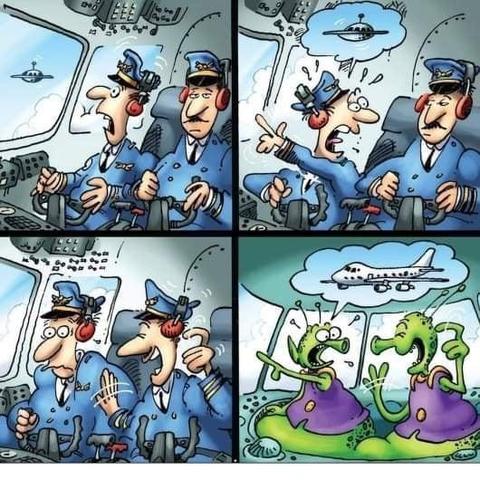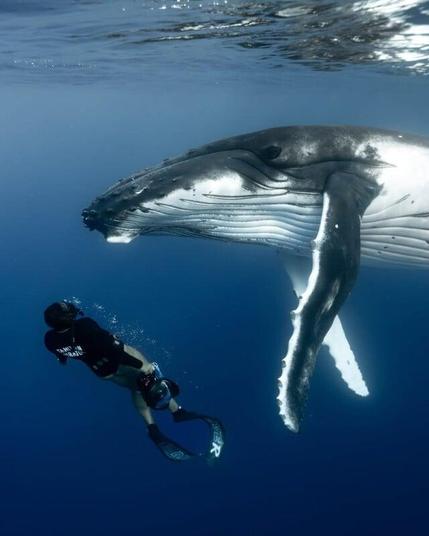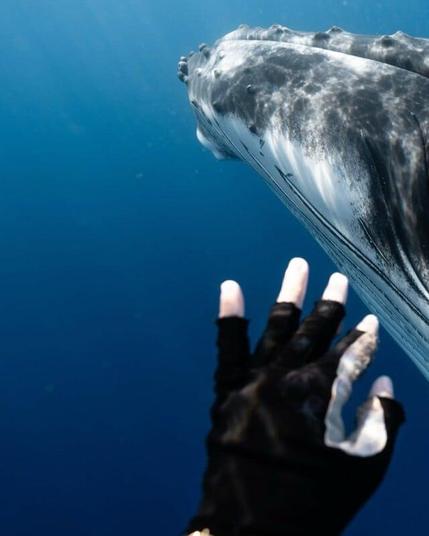“The Life Giving Breath of the Church”
https://youtu.be/TsaBKnqEw_I
Psalm 104:34-35, 37 I will sing to Abba God as long as I live; I will praise my God while I have my being. May these words of mine please Abba God; I will rejoice in Abba God. Bless Abba God, O my soul. Hallelujah!
Introduction
Unintentionally and unwittingly our Christian talk (and God-talk) often sounds as if we’ve forgotten the role of the Spirit in our praxis and doxology (practice and worship). I’m sure many of us, including me, keep the Spirit tucked away back in the recesses of our mind, and we don’t feel like we’re forgetting anything or anyone. I mean, come on, we, Episcopalians, are good Trinitarian, Creedal Christians; we believe in all three persons of the God head. But I get the impression from others—including from myself—that we don’t often take the Holy Spirit—the divine Spirit of God, God in God’s self—seriously. Any form of the pastoral don’t forget about the power of the Spirit is met with yeah, yeah, yeah, the spirit…whatever. (The last part mentioned silently as we turn to continue to do things of our own mind and power.)
Liturgically, the feast day celebrating the arrival of God’s Spirit to dwell in sinner-saints pales in comparison to the way we celebrate Christmas and Easter. Maybe it’s because Pentecost lacks a precursory penitential period like Christmas and Easter; there’s no obvious demand to sit and wait like there is in Advent or an inspiration to fast like there is in Lent. Frankly, this Sunday feels like just another Sunday; once Easter hits, all the BIG feast days are done, now it’s time to relax… Don’t worry, I’m implicated here, too. I’m aware of my own slackened posture toward everything that follows Easter Sunday’s setting sun.
For the Christian Church, the Church doesn’t exist until the Spirit comes, until today. Christmas doesn’t cause it to exist; Easter builds the foundation for it but not the structure. Pentecost establishes the Church in both its seen and unseen expressions; the Spirit is the reason why the Church will never die even if it ceases to exist as it does today. The Spirit is at the core our Christian Identity, both individually and corporately. It is the Spirit who brings all of us together in sibling like unity while celebrating our radiant and beautiful differences is certainly divine work, as Paul says,
Romans 8:14-17
For whoever is guided/carried by the Spirit of God, these ones are sons [children] of God (v.14). Paul, addressing the Jewish and Gentile Christians in Roman, declares to both parties that anyone (“whoever”) has the divine Spirit of God is by default a child (“son”) of God. It is these ones who were indebted to the idiosyncrasies and distinctions of the flesh (clean/unclean; wise/foolish; free/slave), who are now indebted to the Spirit.[1] In this way, their obligations to and association with others must take on a different vibe: one informed by and structured on the unity created by the Holy Spirit. [2] Another way to say this is, Christian Romans—both Jew and Gentile—are dependent on the Holy Spirit for their identification with Christ and their union with God by faith and this makes them more than just a group of individuals; it makes them one body.
Paul goes further, though. It is the Spirit, according to Paul, that makes those who follow The Way of Christ, family. Thus, why Paul then says, For you did not receive a spirit of captivity again into fear, but you received a spirit of adoption by which we cry out, “Papa, Father!” (v. 15). The divine Spirit, who is the source of their identity as “Christ followers” and of their union with God, is the one who ensures that whoever is carried by the spirit, whoever is dependent on the Spirit can call God “Papa!” (By the Spirit, God becomes “Papa!” and is the one you run to in distress rather than flee because of fear.[3]) The theme of adoption Paul employs here carries with it the legal connotation familiar to the Roman society: a person who is not related to you by birth is designated as one’s heir.[4] According to Paul, and this will sound offensive to us[5] as it probably did to the Jewish Children of Israel, no one is a child of God by birth (creation) but only by adoption through the presence of the Holy Spirit,[6] …the same Spirit bearing witness with our spirit that we are children of God (v. 16).
Does this mean that the “children of God” are only Christians, and it is these who are worthy of love, life, liberation?[7] The answer to that is “No.” Recalling v. 14, For whoever is guided/carried by the Spirit of God, these are sons/children of God, the “whoever” expands the definition, broadens the scope from those who look, act, are a certain way to whoever is so imbued with God’s Spirit and whoever thusly acts like children of God (cf. Romans 2).[8] Said in another way, those who love/anyone who loves those who and that which God loves are the children of God because to love as God loves is the result of the presence of God who is love.[9] Concurrently, Paul is talking to a community threatening division over identities,[10] to this Paul says, Stop it! You are all the children of God, no group more so than the other; we are all children of God who have this same Spirit affirming us and helping us all to cray out “Papa, Father!” (Αββα ὁ πατήρ being both Aramaic and Greek father addresses[11]). Thus, their obligations are to each other—no matter previous religious affiliation and sex (Paul switches from “sons” (υἱοί) to “children” (τέκνα) or other facets of identity[12]. If this, then, following John from last week, those outside of the church will know these ones follow Christ and encounter Christ thus God through the community in unity’s witness in the world by the power of the Spirit.[13]
Our passage ends with Paul saying, Now if children then heirs; heirs of God, and joint-heirs of Christ, if we suffer together/are affected by the same thing so that also we might be glorified (v. 17). According to Paul, those who are guided/carried by the Spirit of God, are those who become children of God, who have God as their Abba, Parent, and are those who are joint-heirs with Christ. Heirs of what? Well, not heirs of the honor and glory and power offered by the kingdom of Humanity, but of suffering. What type of suffering? Well, the suffering that Christ suffered. Those who are children of God are siblings of Christ and if siblings than they will also speak and act in the world as Christ did and this brings suffering and not human defined glory and success. Why? Because Christ didn’t identify with the strong and powerful, but with the weak and powerless and this, by faith and the power of the Holy Spirit yoking us into the family of Christ and God, means that we identity with the least of these, too, as Christ did;[14] in this way, we do not create our own glory defined by the kingdom of humanity, but receive glory from God in the reign of God.[15] How the disciples of Christ, the Church, treat the most disenfranchised and oppressed of society, speaks to their identification with Christ and whether or not the Spirit is present in and among them.
Conclusion
Every Sunday, we say this about the Spirit:
We believe in God within us,
the Holy Spirit burning with Pentecostal fire,
life-giving breath of the Church,
Spirit of healing and forgiveness,
source of resurrection and of eternal life.
This is no small declaration. God dwells within us in the Spirit, who inflames our hearts and bodies to participate in God’s mission of the revolution of love, life, and liberation, the Spirit is the means by which we are healed and how forgiveness (both God’s forgiveness of us and our forgiveness of others) is worked out, and it is the Spirit that is credited with our daily resurrection and the the hope we carry of our bodily resurrection into eternal life at the time of death. The Spirit is the “life giving breath of the Church”; in other words, without the Spirit there is no Church. Our first reading highlights this point: Peter and those with him receive the Spirit and can now speak in different languages thus proclaiming the good news of God that is the incarnate word of Jesus the Christ. From here, the church begins to be a thing in the world, a place carved into time and space to make room for an encounter with God in the event of faith through Jesus preached and, by the power of the Spirit, Christ heard. It is by the Spirit that people, from anywhere and everywhere, can gather and be one as Christ and Abba God are one and be made into the representatives of Christ in the world (ref. John 17). It is by the Spirit that these people so gathered can grow into the likeness of Christ, to become those who can hear the leading of God’s will on earth as it is in heaven and follow the divine footsteps toward the beloved who are fighting to survive in any generation (ref. John 16). It is by the Holy Spirit that the ones so gathered can become the mature Christians of Ephesians who find themselves flexible in receiving and responding to God’s continuous self-disclosure even when it contradicts the kingdom of humanity (ref. Ephesians 4). And it is by the power of this Spirit of Love, that those who hear and gather can consider themselves to be God’s children, thus heirs with Christ of all that is of Abba God.
[1] Sarah Heaner Lancaster, Romans, Belief: A Theological Commentary on the Bible, eds. Amy Plantinga Pauw and William C. Placher (Louisville: WJK, 2015), 139. “Although he does not explicitly state the further implication of no longer being debtors to the flesh, it is clear form what he has said previously that we are debtors instead to the spirit.”
[2] Lancaster, Romans, 139. “When we leave the law of sin and death to follow the law of Spirit and life, we exchange one set of obligations for another. Our new obligations are established not by a system of patronage but by being brothers and sisters in Christ, children of God. This relationship is what determines our responsibilities to one another.”
[3] LW 25:358. “For in the spirit of fear it is not possible to cry, for we can scarcely open our mouth or mumble. But faith expands the heart, the emotions, and the voice, but fear tightens up all these things and restricts them, as our experience amply testifies. Fear does not say Abba but rather it hates and flees form the Father as from an enemy and mutters against him as a tyrant. For those people who are in the spirit of fear and not int eh sprit of adoption do not taste how sweet he Lord is…but rather He appears to them as a harsh and hard, and int heir heart they call Him a virtual tyrant, although with the mouth they call Him Father…”
[4] Lancaster, Romans, 139. “To further stress the relationship of being brothers and sisters in Christ, Paul uses the image of adoption, a legal practice in roman society of designating someone who is not one’s physical offspring to be one’s heir.”
[5] Lancaster, Romans, 140. The modern conception of “children of God” based on our being all created as God’s children is not the image Paul has. “…Paul speaks of being children of God by adoption, not by creation. Although it does capture and expand concern about our obligations toward one another, this understanding of all humans as children of God does not help to understand what Paul means in these verses.”
[6] Lancaster, Romans, 140. “The status of child of God is not given to all humans simply by virtue of being human. It belongs specifically to those who have been led into this relationship by the Spriit.”
[7] Lancaster, Romans, 140. “The idea that ‘children of God’ is a more restricted group than all humans leads to the question about who belongs in that group.”
[8] Also building here from Dorothee Sölle’s conception that anyone who identifies with the least of these and meets their real, tangible, physical need are those who represent Christ to humanity. See her Christ the Representative.
[9] LW 25:358-359. Shifting from spirit of fear to spirit of love can only happen if “we have His spirit, so that in the same spirit we love the same things which He loves and hate the things which He hates in the same way that He does. For we cannot love those things which God loves unless we have the love and will and spirt which He has. …And those people are called godlike men and sons of God because they are led by the Spirit of God.”
[10] Lancaster, Romans, 140. “Paul is still addressing the whole community (‘you’ plural and ‘we’). His intent is not to break down community in competition over who is a child of God and who is not, but rather to underscore the new community we have when we are in Christ.”
[11] Lancaster, Romans, 142. “…Paul has included both the Aramaic and Greek forms of address to God. The inclusion of both languages makes sense in a community made up of Greek and Jewish followers of Jesus, and since both words indicate the adopted status of the ones who cry out, each group needs to recognize its common inheritance with the other. Because the word ‘heir’ calls to mind Paul’s discussion of inheritance regarding God’s promise to Abraham (4:13-14) the direct address to God in both Aramaic and Greek reinforces the common spiritual ancestry of the followers of Jesus, whether they may be Jew or Gentile. Neither group has a lesser place in the community, and they need to see and treat each other equally as brothers and sisters in Christ.”
[12] Lancaster, Romans, 141. Word play in Greek between huiothesias and huioi “The Greek wordplay between “sons” and “son-making” also calls to mind that in 8:3 Paul says God sent the Son into the world to deal with sin. Through Jesus Christ, God’s own Son, we come adopted sons and therefore join heirs with Christ. The masculine language in Greek has a purpose in connecting all these ideas, but Paul drops the masculine language in 8:16-17 to speak instead of ‘children’ (tekna). By shifting to language that is not gender -specific, Paul makes clear that women as well as men are heirs with Christ, thus breaking down on of the traditional hierarchical barriers between people in Romans society and opening the way to think of how other barriers are also overcome in Christ. Adoption makes the followers of Jesus kin to one another, brothers and siters in Christ, regardless of their place in society.”
[13] Lancaster, Romans, 141. “The presence of the Spirit in the gathering for worship leads the followers of Jesus to cry out to God as a parent, confirming that they are not slaves but children of God. Their allegiance to the dominion of the Spirit presents them with a new set of obligations—not obligations of slave to master but rather the obligations of joint heirs because of their common adopted status.”
[14] LW 25:356. “‘To be led by the Spirit of God’ is to put to death our flesh, that is, the old Adam, and to do it freely, promptly, and gladly, that is to despise and renounce all that is not God, even ourselves, and thus ‘not to fear death or the friends of death, the fierce race of penalties,’ and likes ‘to give up the empty pleasures of the world its corrupt and sordid prices,’ and freely to relinquish all good things and embrace evils in their place. This is not characteristic of our nature, but is a work of the Spirit of God in us.”
[15] Lancaster, Romans, 142. “Of course, the inheritance that joint heirs with Christ receive comes through being baptized into his death. Suffering comes before glory. Just as the son took on the vulnerability of weakness, which brings social shame, the joint-heirs with Christ must give up the mindset of the flesh that would seek glory in status and power and instead follow the Son’s example of accepting the suffering that accompanies weakness in order to gain a more secure glory. The passive ‘be glorified’ indicates that glory is not ours to be own, but rather it is God’s to give.”
#ChildrenOfGod #ChristianDoxology #ChristianPraxis #Church #Doxology #Encounter #HolySpirit #Jesus #JesusTheChrist #MartinLuther #Pentecost #Praxis #Romans #Romans8 #SarahHeanerLancaster #SpiritOfGod






